#tambaluslos
Explore tagged Tumblr posts
Text
The Ancient Bicolano Deities and Creatures
(ALL ART BY AFRAN MARFIL)
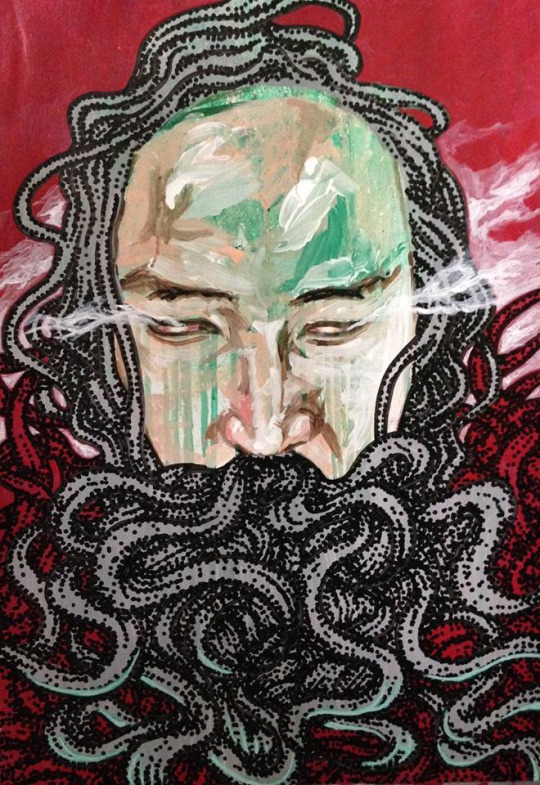
- "Gugurang"
Gugurang loomed high in the Bikol pantheon of gods. He was their (the people’s) benefactor, guide and defender against the god of evil, Aswang, who would anger Gugurang by inciting the people to rebel against the good god, do evil deeds and resort to sloth and easy pleasures. Seeing this, Gugurang would punish and pounce on Aswang and to his people, he gave protection and exhorted them to make sacrifices in order to appease his anger. The myths disclose him as a powerful and loving god who would vent his fury mercilessly on the transgressor but would shower them with gifts and protection in return. (Realubit, Bikols of the Philippines, p. 10).
It is believed that ancient people looked up to him with great respect as they fervently gestured to the skies and spoke with profound affection for a great lord whom they adored, revered, and feared.

- "Asuang"
Brother of Gugurang; an evil god who wanted Gugurang’s fire, and gathered evil spirits and advisers to cause immortality and crime to reign; vanquished by Gugurang but his influence still lingers.

- "Bakunawa"
Believed to be the cause of eclipse, Bakunawa is the deity of the deep and the underworld.
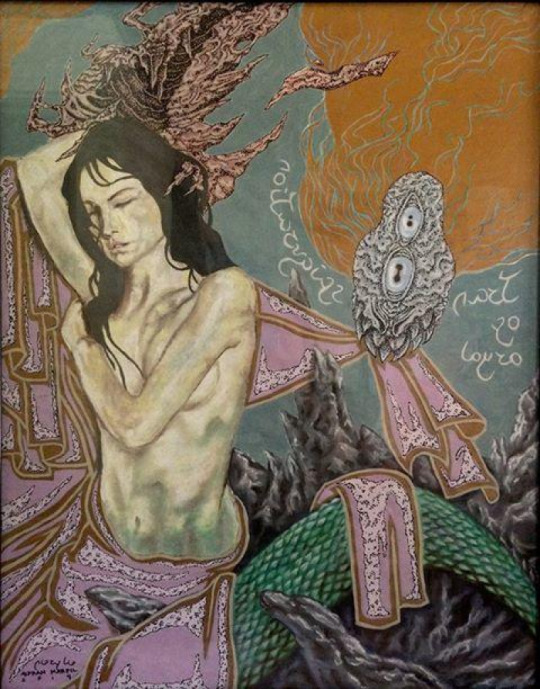
- "Oryol"
A demi-goddess in Bicolano myths, she is mentioned in the Ibalong Epic. A wily serpent who appeared as a beautiful maiden with a seductive voice; admired the hero Handyong’s bravery and gallantry, leading her to aid the hero in clearing the region of beasts until peace came into the land

- "Haliya"
Haliya is the masked goddess of the moonlight worshipped in pre-colonial Ibalon (present-day Bikol region) and in some parts of coastal Bisayas. Haliya was a warrior goddess who would wear a mask of gold to hide her beauty. In Philippine Mythology, Haliya was the name of a lunar goddess. She was said to be so beautiful that the sea goddess Bakunawa fell in love with her and sought her affections.
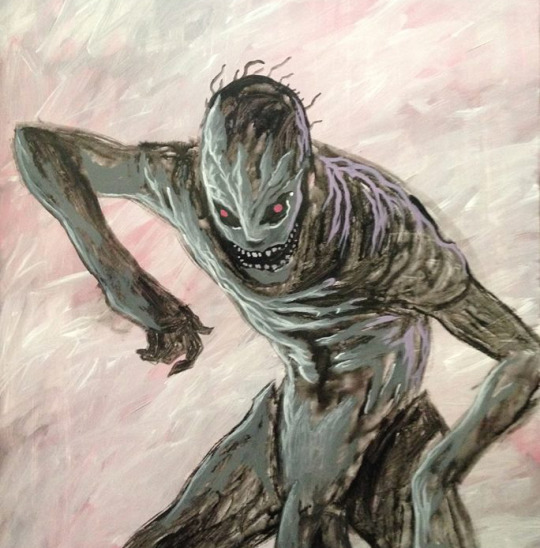
- "Tambaluslos"
A tall humanoid creature from Bicol. Generally black in complexion, it has long and thin legs with big joints, hooves, long thin arms and fingers, and a mane that runs from the back of the head down to its buttocks. It also has wide protruding lips like an ape. Another strange feature of this creature is that it has a long wrinkled penis and loose testicles which dangle on the ground. The creature’s name is derived from this feature which is referred to as ‘luslus’ which means ‘loose and hanging’. The Tambaluslos chases people who wander in the woods. The only way to escape it is to take off your clothes and wear them upside-down. The creature finds this act very hilarious and it will laugh so much that its wide lips would cover its face, therefore preventing it from seeing the victim who in turn will have ample time to escape.
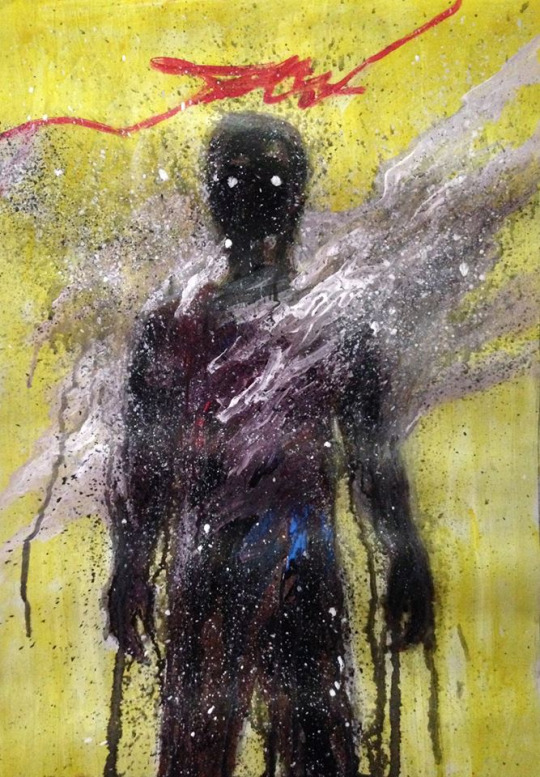
- "Tawong Lipod"
The ''Tawong Lipod'' or wind people, is a race of mythological creatures in Philippine mythology, most prevalent in Bicol area they are the court servants and handmaidens of the lunar gods Bulan and Haliya. They are beautiful, supernatural beings, youthful and elegant, and superb in the art of dancing. They are the nymphs of the winds and clouds forever loyal to the moon gods. lithe beings with light-colored skin who inhabit the skies, and are often depicted taking flight. they are called Biraddali by the Tausug
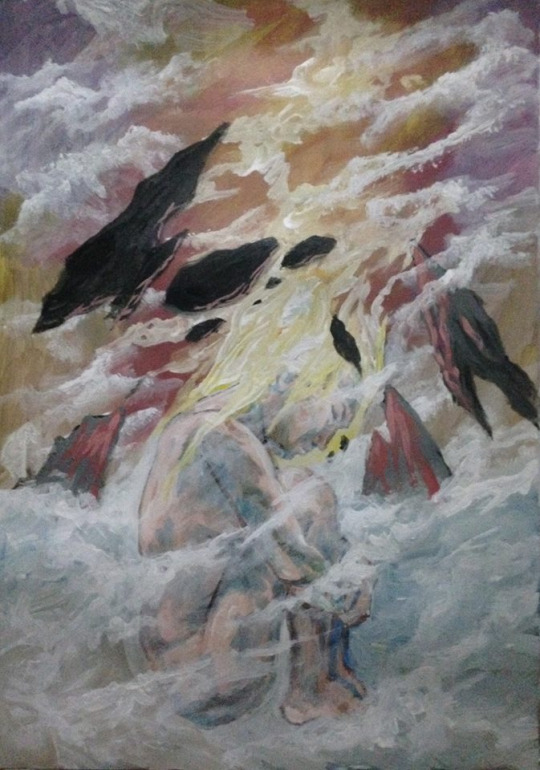
- "Daragang Magayon (Beautiful Maiden)"
The heroine that appears in the legend of Mt. Mayon. She grew up to be a very beautiful and sweet woman that struck the swains from faraway tribes who vied for her attention. When a war between her lover, Panganoron, and his enemy, Pagtuga, arise, her lover dies in her arms. In her grief, she grabs the knife used to kill Panganoron and stabbed herself. Magayon and Panganoron are buried together, their burial soon turning into what is now Mt. Mayon.
Some people say that it's a curse because she took her own life, but myths and legends say Magayon is the volcano and Panganoron is the clouds that surround the beautiful volcano.
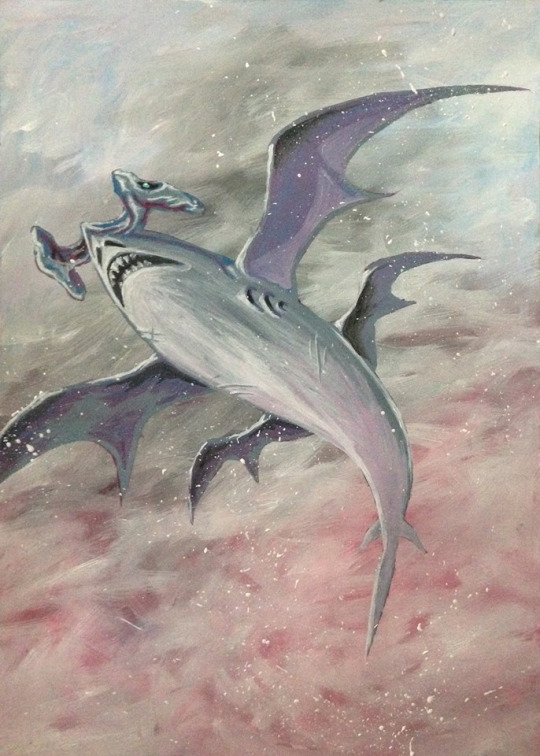
- "Triburones"
A shark, with razor sharp teeth, that can fly and circle its prey from the air. ‘Tiburon’ is Spanish for ‘shark’, most English translations of the Ibalon use this name for the creature (Triburon). In Bikol, these creatures are known as Pating na Pakpakan. In the Ibalon epic, they were tamed by the warrior-hero Handyong.
#bicolano deities#phillippine deities#filipino gods#filipino goddesses#philippines#philippine art#art#research#alfran marfil#eclipse#gugurang#asuang#bakunawa#oryol#haliya#tambaluslos#tawong lipod#triburones#long post#bicol#bicolano#bikolano#bikol
36 notes
·
View notes